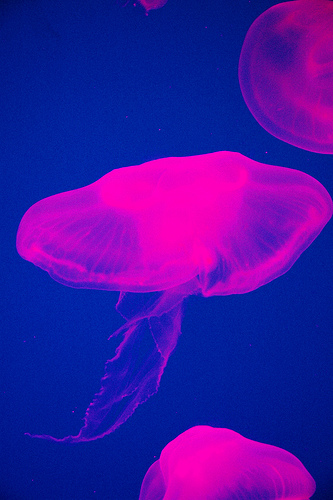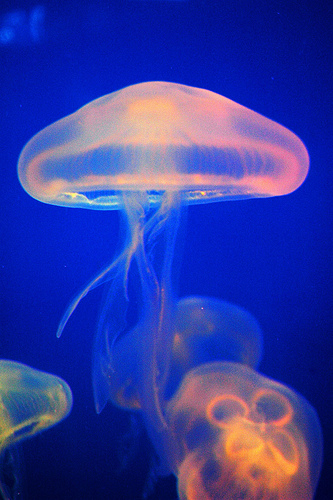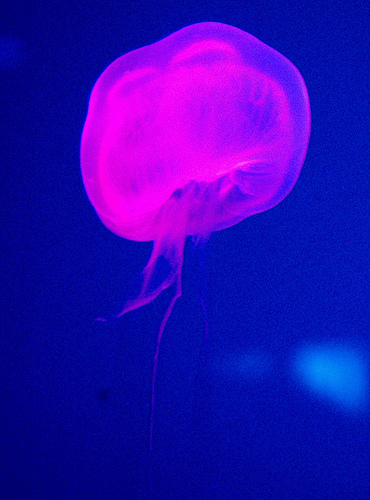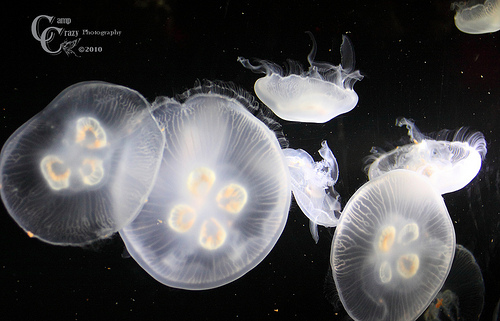Facts



(all the above pictures of property of Victor Fernando R.
Ocampo (c) 2012.)
Pet Jellyfish? Why Not?
It’s possible to
have a moon jelly for a pet, if you’re interested. Many online
websites sell and give great instructions in order to care fore
these jellies. Depending on the size and the company you buy it
from the price varies from $30 and up. The Moon Jelly is great
as a
pet because can change colors anywhere from lilac to
purple. The usual conditions in order to be sold a moon
jellyfish is to have already purchased the Eon Jellyfish system
and to be somewhat knowledgeable about the moon jelly themselves
to take good care of them. Only recently, can people
purchase
these jellyfish because of the particular habitat these
jellyfish need in order to survive and the food that needs to be
provided.
Halloween Theme
Here's an interesting fact that you may or may not know about
the moon jellyfish, the nematocyst or stinging cells are still
effective even after they're dead. (ceoe.udel.edu) It's pretty
cool that even after the jelly dies it's body can still protect
itself from predators trying to feed on its lifeless body.
Pretty creepy. Jellyfishes have always been known to be cryptic
and ambiguous probably because its a headless creature; it has
the best poker face. Another awesome thing about the moon
jellyfish is that it can change colors according to the type of
food that it eats. Just think if you were to eat an apple and
turn blue. The photos above and below show the different color
changes, which are pretty to look at. Wouldn't it be cool if all
animals could glow in the dark too? There are a few propositions
for experiments to test if this luminescence in these jellyfish
could transfer over into another organism simply by ingesting
the jellyfish for a long period of time. It's unlikely, but you
never know!

(photo is courtesy of Serena Livingston)
multiorganisms.net
![]()